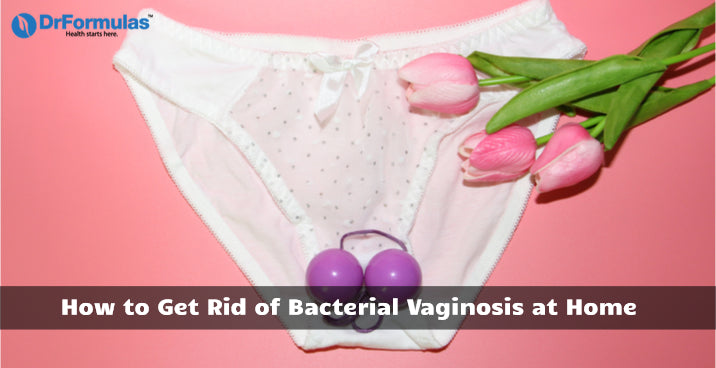
Bacterial vaginosis is the most common type of vaginal infection, resulting from the “bad” bacteria in the vagina outnumbering the “good” bacteria. This bacterial overgrowth upsets the natural balance of the vagina, resulting in itchiness, discharge, painful urination, and other symptoms. Antibiotics are often prescribed to treat bacterial vaginosis, but if you can’t take antibiotics or simply want to look for other options, you can still treat BV without them. Read on to learn more about getting rid of bacterial vaginosis without antibiotics.
Garlic
This common food item is believed to provide a wide range of health benefits. Much of that comes from its reported antibacterial properties, which may extend to its potential effects on bacterial vaginosis. In a randomized clinical trial, 120 married women who were diagnosed with bacterial vaginosis were randomly treated with either a garlic tablet or oral metronidazole (a common antibiotic prescribed for bacterial vaginosis) for a period of seven days. The results of the study found that both the garlic tablet and metronidazole groups experienced a comparable improvement in symptoms. However, metronidazole was associated with far more side effects. This suggests that garlic may act as a potential alternative to traditional antibiotic treatments for bacterial vaginosis.1
Consider incorporating more garlic into your everyday diet or taking a garlic supplement. Keep in mind that garlic should only be eaten or otherwise consumed orally. Do not use garlic as a vaginal suppository, which may result in burning and irritation.
Apple Cider Vinegar
Studies have found that apple cider vinegar presents significant antimicrobial properties and may inhibit common microbes like E. coli, Staphylococcus aureus, and Candida albicans.2
Apple cider vinegar is also a naturally acidic product. This may help to balance vaginal pH to support a healthy vaginal microbiome. The vagina is naturally slightly acidic with a pH that varies between 3.8 and 4.5. Some studies have found that vaginal acidification may help to reduce existing bacterial vaginosis and prevent future recurring infections.3
Tea Tree Oil
Tea tree oil is known to possess natural antifungal and antibacterial properties. In a small in vitro study, researchers found that tea tree oil used on its own may help to reduce symptoms of bacterial vaginosis by selectively killing or inhibiting certain bacteria without affecting existing lactobacilli and other good bacteria in the vaginal microflora.4
If you do use tea tree oil, note that some people are allergic to this essential oil. Furthermore, all essential oils are highly potent and must be diluted with a neutral carrier oil, like coconut oil, olive oil, or sweet almond oil, in order to avoid irritation.
Boric Acid
Boric acid is a boron compound that is commonly used as a home remedy for general vaginal infections, including yeast infections.5 A meta-study found that boric acid may be a safe and effective treatment for recurrent vulvovaginal candidiasis, a type of yeast infection.6
In a study, 58 patients with recurrent bacterial vaginosis were treated with intravaginal boric acid combined with their usual oral nitroimidazole antibiotic. The results of the study suggest that boric acid used in conjunction with antibiotics may allow for a faster cure rate for recurrent bacterial vaginosis.7
Although boric acid is safe for use vaginally, it can be toxic when ingested orally.
Probiotics
Probiotics are beneficial bacteria that mostly populate the gut, but the vagina is also home to its own population of beneficial bacteria, known as the vaginal microflora. Bacterial vaginosis is often associated with an imbalanced vaginal microbiome. Taking probiotics, either via food or a supplement, may help to rebalance bacterial populations within the vagina. Studies have shown that daily administration of probiotics, either orally or directly into the vagina, may help to treat bacterial vaginosis and prevent recurring cases of the infection.8
Lifestyle Changes
Along with changes to diet, simple changes to lifestyle may help to prevent cases of bacterial vaginosis.
Avoid Douching
Douching involves washing or cleaning out the inside of the vagina, often with a mixture of fluids. Although it may seem to cleanse the vagina, douching only upsets the pH and natural bacterial balance of the vagina.
Practice Good Hygiene
Along with avoiding douching, practice good general hygiene:
- Avoid using scented products on your vagina as they can irritate and dry out the vaginal lining and cause imbalances in the vaginal pH, contributing to bacterial vaginosis.
- When on the toilet, wipe from front to back to avoid introducing fecal matter and bacteria into the vagina.
- Keep the area dry and avoid sitting in wet swimwear or clothing for long periods of time.
- Always wash your hands before touching your vagina to avoid introducing any foreign bacteria into your system.
Practice Safe Sex
Bacterial vaginosis is by no means a sexually transmitted infection, but some studies do suggest that having bacterial vaginosis may increase your risk of contracting an STI.9 Always practice safe sex. Use a condom or dental dam during sex. Studies have shown that consistent condom usage during sex can reduce incidents of bacterial vaginosis and prevent alterations to vaginal microflora.10 Lube can also help to provide a more enjoyable and healthy experience by reducing friction and irritation, but avoid spermicidal lubes, which contain chemicals that can potentially cause irritation as well as imbalances in vaginal microflora
Although bacterial vaginosis can be easily treated with antibiotics, you may not want to deal with the potential side effects associated with antibiotics. If you have recurring episodes of bacterial vaginosis, it’s a good idea to consult your doctor to determine sustainable treatment options.
Sources:
- https://www.ncbi.nlm.nih.gov/pmc/articles/PMC4166107/
- https://www.ncbi.nlm.nih.gov/pmc/articles/PMC5788933/
- https://www.ncbi.nlm.nih.gov/pmc/articles/PMC4718981/
- https://www.ncbi.nlm.nih.gov/pmc/articles/PMC89050/
- https://www.healthline.com/health/womens-health/can-boric-acid-help-treat-bacterial-vaginosis
- https://www.ncbi.nlm.nih.gov/pubmed/21774671
- https://journals.lww.com/stdjournal/Fulltext/2009/11000/Boric_Acid_Addition_to_Suppressive_Antimicrobial.13.aspx
- https://www.ncbi.nlm.nih.gov/pubmed/24299970
- https://www.womenshealth.gov/a-z-topics/bacterial-vaginosis
- https://www.ncbi.nlm.nih.gov/pubmed/17917605


